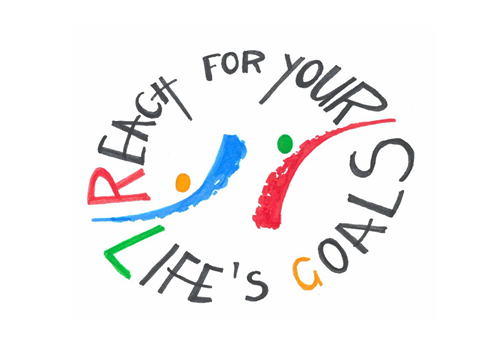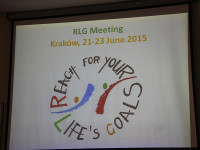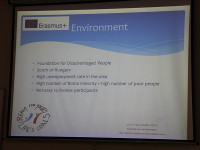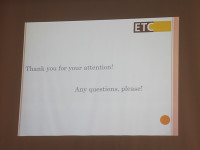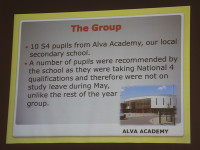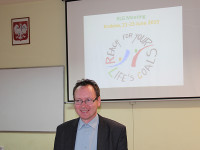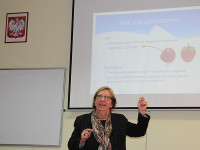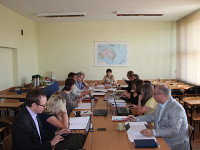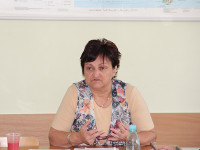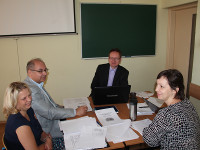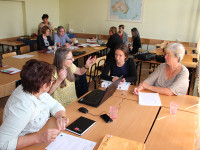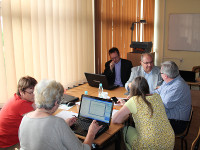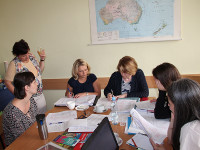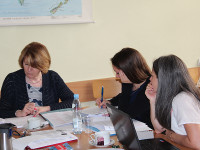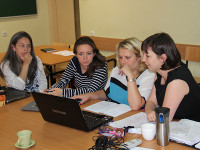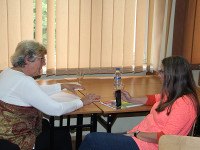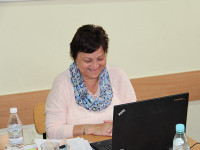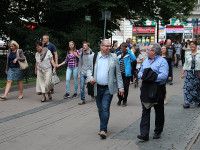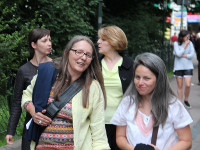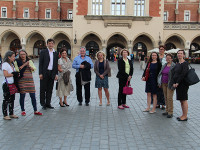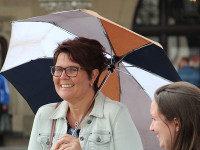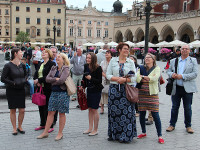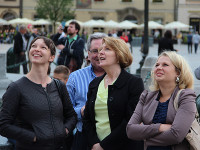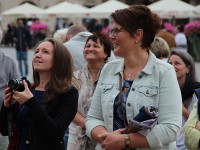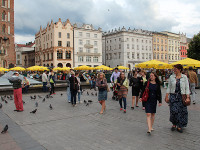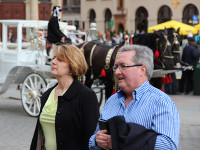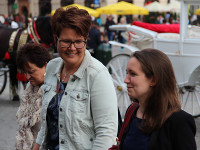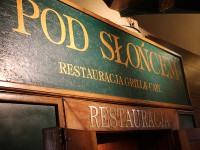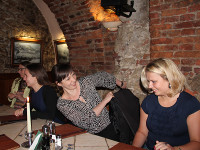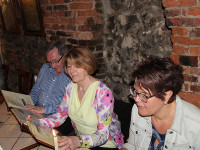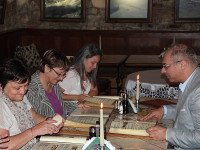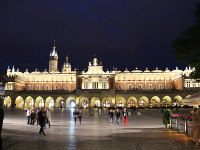Cracow, June 2015
The Pedagogical University hosted the fourth partner meeting in Cracow between 21 and 23 June 2015. The first day the partners focused on sharing the results of the testing experiences which had taken place up to that point.
The Hungarian participants informed their partners about having tested the programme twice in the first round. The first testing took place in Pécs, a city in Southern Hungary and had been finished before the Cracow meeting. The next series of testing was being carried out in the reformatory EMMI in Budapest where the training was going on at the same time as the Cracow meeting. Focussing on the Assessment Day activities, feedback was given on how the participants found the particular tasks:
- The participants did enjoy the activities of the programme. They showed creativity most of the time but they could concentrate on the exercises only for a short time.
- One observer is not enough to follow the activity of the learners in groups where there are too many participants.
- The duration of time to be spent on implementing the activities has to be reviewed in some cases.
- The trainers of the testing process proposed certain changes that were summarized in written form.
The young people had a good opinion of the trainings in general. They realized that doing exercises and working out tasks might help their achievement in the years to come. They however advised that the activities should not exceed a two hour period and expressed their opinion that longer periods could be too tiring. Apart from this issue the learners were looking forward to participating in subsequent activities.
The German colleagues provided feedback from the testing group whose activities were observed during the previous meeting in Munich. The young people participated in the five hour activities of the Assessment Day with motivation and concentration. The lecturer gave feedback about which items and to what extent the Assessment Day proved to be successful exercise by exercise. General experience shows that the learners enjoyed the practical exercises but they disliked the written ones. The German colleagues emphasized it would be worthwhile connecting the activities to realistic problems young people often have in their everyday life.
They mentioned that the group examined has been participating in ETC for a long time and Project RLG covered just part of their training time. Their teachers have perceived that the motivation of the young people grew over the period. Since the learners did various things the teachers could not decide how much of this change was attributable to the RLG programme. The testing group – as compared with earlier trends – had a high proportion who successfully applied for training places or employment. It cannot be stated that it was a consequence of the project, but it is a fact that more attention has been paid to strengthening motivation.
The Scottish testing group was made up of boys and they tried out some of the exercises that had been corrected by the first experiences. The young people gave feedback by using smilies and denoted how much they liked-disliked the activities. Colleagues experienced that the boys were mostly motivated by circumstances when they could:
- do practical and fun activities,
- compete with each other,
- win awards or prizes,
- select their own leaders,
- have a chance to take responsibility,
- receive positive feedback about their achievement.
Colleagues have drawn a few conclusions related to management:
- It would be useful to evaluate attitudes prior to the Assessment Day.
- The Assessment Day could take place in schools where the young people learn and come to participate in the programme
- It would be useful to insert short practical activities among two written exercises.
- Written exercises should be done in pairs.
- A one day training might be more efficient than a cohesive programme held in one block.
At the time of the Cracow meeting the Polish colleagues were still about to start their testing period. They presented details of the features of the schools selected. They planned to do part of the testing in Wielicka, a small town not far from Cracow which has a well-equipped vocational teaching centre. The centre trains shop assistants and cooks at entry level. Trades related to economy, commerce, tourism, hospitality and computer technology are trained at middle level. The other pedagogical institution they have chosen is a well-equipped secondary school in Cracow providing general education. Both institutions can be characterized by a diversified range of leisure activities besides traditional schooling.
The presentation made it clear that the future possibilities of the Polish target group are much better than those of the young people in the other three countries. The Polish colleagues however expressed their opinion that a large number of students are not motivated enough and they are not inclined to make use of their potential. They can often see that learners are not aware of the importance of self-development and learning. The symptoms described above are the reason the schools wanted to participate in the RLG project – hoping that it would raise the learners' interest in shaping their own future.
At the end of the first day the Hungarian partners presented a few components investigating the personal and social competence tools assessment, which also formed part of the Hungarian testing. These types of competence will be available in English and the succeeding groups will be able to try them out.
Work went on in small groups during the Cracow meeting – four partners participated in each group.
- The first group has systematized the materials of the assessment programme completed up to that date and finalized it based on the testing experiences.
- The second group has over-viewed the exercises of the training programme. They systematized the components by competence types – and could see the rate of preparation of each development area in terms of percentage.
- The third group has started to sketch the Train the Trainers' Program – based on joint ideas formulated earlier.
The work carried on in small groups has been frequently interrupted by joint conversations. The participants of the groups shared their ideas with the others. A number of people reflected the ideas and added new thoughts.
After finishing intensive work the group enjoyed a free evening around the dinner table. Informal conversations were accompanied by a short walking and sightseeing excursion on the main square.
The groups kept working on the third day and they fixed the subsequent tasks and deadlines. Finally the professional manager informed the participants about the actual issues of the interim report.


